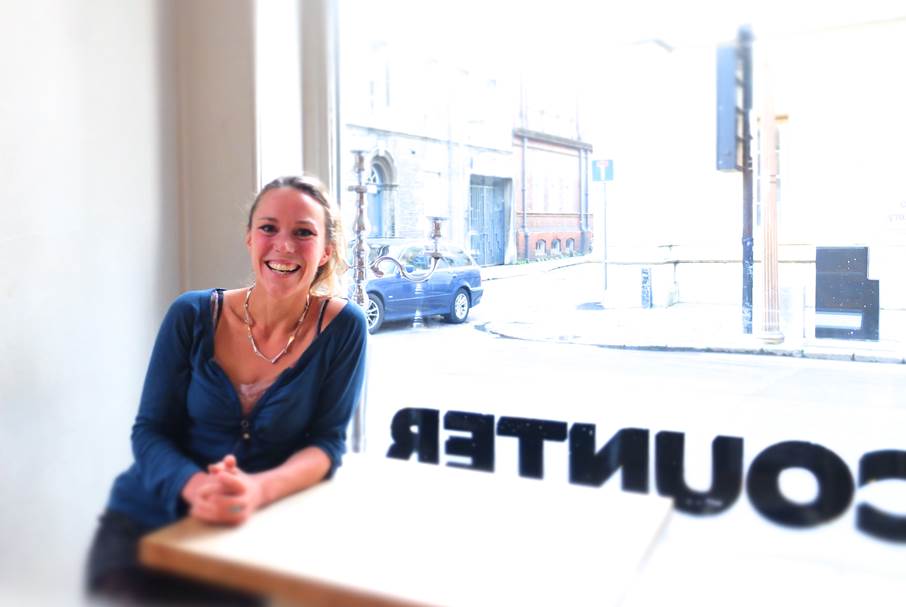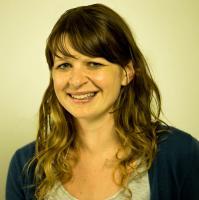Science has a language all of its own - precise, poly-syllabic and passive, it is a language that doesn't always make it easy to understand the passion and excitement that comes with the quest to discover something new. Fortunately, there are people out there who are amazing at communicating not just the science itself, but also how much fun research can be! Meet Dr Hannah Critchlow of Cambridge University, a passionate neuroscientist and powerful storyteller who spoke at the Hay Festival in Wales earlier this year about the brain and human creativity, analysing the brainwaves of her audience using an EEG kit and PowerLab and wiring up a writer to show how the creative brain goes about composing a difficult chapter. We spoke to Hannah about the festival, her love of neuroscience and what inspires her.

Tell us a little bit about the session you ran at the Hay festival.
I was invited to talk there as part of the Cambridge University sponsored series, firstly discussing how neuroscience findings might shape future societies and in a second event, with the incredible Bettany Hughes, a Greek historian, we travelled backwards and forwards through time to explore concepts such as creativity, xenophobia, hospitality, love and comedy from an ancient Greek and modern neuroscience perspective.
ADInstruments kindly donated a PowerLab - their ‘magic box of tricks’ - to help illustrate my talks in a theatrical fashion! I delivered an electric shock to myself to demonstrate how the nervous system is a complex neural circuit board which uses electricity. I also read audience members’ brain waves with the EEG kit, to demonstrate that we can, in some crude sense, peer into the mind, analyse the electrical activity of the 100 billion nerve cells! I also looked at Bettany Hughes alpha and beta brain waves as she puzzled over a troublesome chapter of a book she is writing, to see how the electrical activity in her brain changed in time with her focus, attention, creativity and problem solving whilst looking at different paragraphs.
How did the audience respond?
The talks met with fantastic feedback from the audience, many questions were posed afterwards and the interactive aspect of the talk was incredibly positively received - the ADInstruments kit greatly helped to bring the topics to life. The sessions also received national and international press attention and I was described by the Telegraph and the New York Times as one of the unofficial stars of the Hay Festival, so all in all, a great weekend in Wales!
Did you always want to be a neuroscientist? And how did you begin creating public events?
I started to become interested in neuroscience whilst working as a nursing assistant at a psychiatric hospital when I was 18 yrs old. From there I studied for my undergraduate degree in Biology and PhD in neuroscience with the view to continuing with research, with the aim to help develop new treatments for people affected by mental ill health. I then volunteered for a local mental health music charity and realised that I enjoyed discussing research with the public, those affected by mental ill health and the scientists more than the actual research and so, with the help of a Wellcome Trust Society Award, began to host Iive neuroscience events in schools and public festivals to over 30, 000 people across the globe.
What is the best part of your job?
Discovering how much we are learning about the brain and seeing how this knowledge can help empower people.
Who are your science heroes?
Johnny Ball who presented the BBC science TV programmes when I was a child - he enthused me on the wonders of science, and Professor Trevor Robbins and Professor Barbara Sahakian who I have worked with here at Cambridge University - they taught me the delight of creatively crafting scientific programmes to inspire and discuss neuroscience ideas with the public and scientists.
For you, is your work about the journey or the destination?
Both! I work best with a deadline to aim for, and so a live event or broadcast date sharpens my mind to help me to stay focused. I enjoy learning whilst on the journey of discovery in setting up a new project or researching a new programme, and then I love the immediacy of gaining feedback and constructive criticism following delivery of the project.
What advice would you give to a student considering this career?
Keep doing whatever inspires and enthuses you!
Great advice! Thanks Hannah for sharing what you do with us - and for spreading the love of neuroscience!
